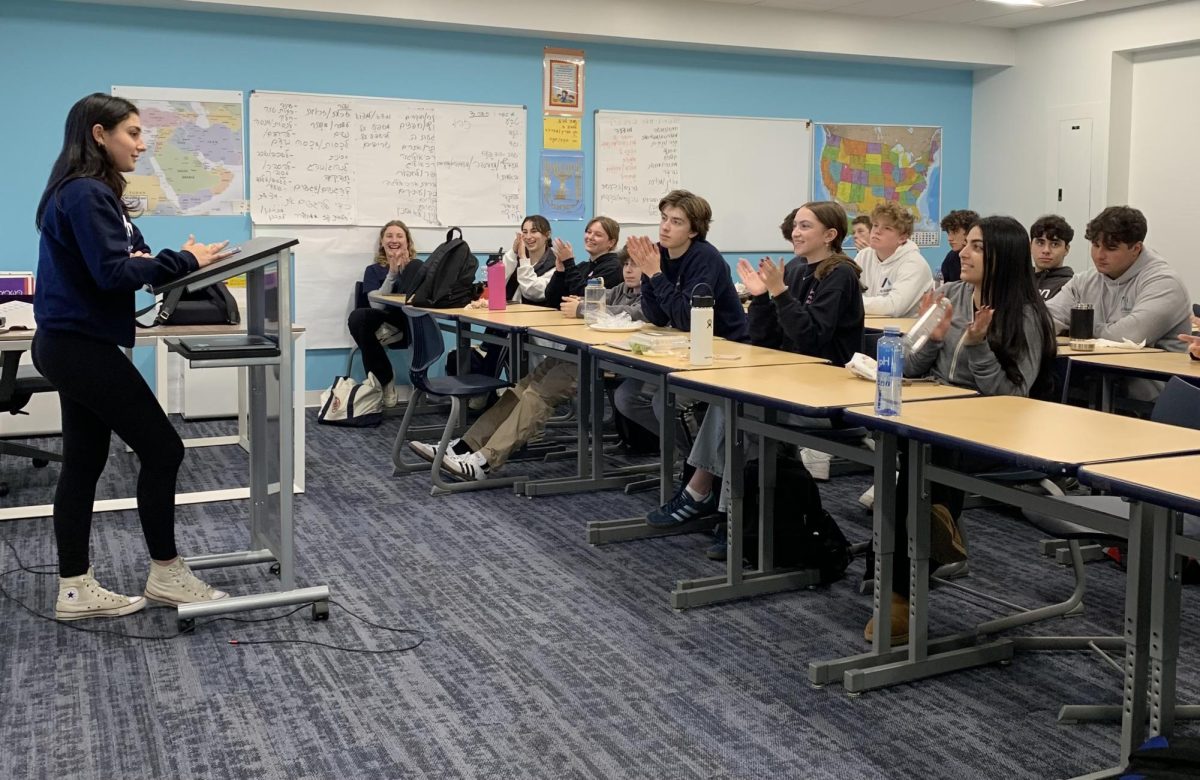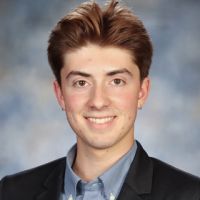Samantha Simms, ‘25 is delivering a highly technical and scientific argument to an engaged audience. “With the advent of cutting-edge biotechnology, such as CRISPR-Cas9, the question of whether or not it is ethical to genetically engineer gametes, eggs and sperm, and embryos is being debated now more than ever.”
Addison Cooper, ‘25, took a different route and argued in favor of gene editing in an impassioned and rousing speech. “Imagine you are a mother or father who has an incurable disease which consistently haunts you and your everyday actions. Whatever it may be, I can assure you that one would never wish this pain and agony onto their future children.”
This all took place during lunch on a recent Tuesday when around 30 Milken students crammed into room 2-115, filling nearly every available seat to hear student speakers debate and discuss the benefits and drawbacks of gene editing. With subjects ranging from abortion to Socialism, Junior State of America (JSA), which is led by David McNamara ‘25, invites students to come to lunch every Tuesday and debate political and ethical issues facing America in the 21st century.
JSA is a national organization founded in 1934 that seeks to help students become leaders and debaters in their local communities. David McNamara is the president of the club and describes his role as “The General Secretary.” He says, “I have final executive say over everything. And my Co-Presidents are kind of my advisory council so they tell me their ideas and what they think we should do.”
Outside of school, students who are a part of the club attend three regional conventions each year – Fall, Winter, and Spring State – that bring together all the JSA clubs from a particular region. A typical debate at school, according to McNamara, has “four-to-six prepared speeches from especially engaged speakers. Those could range from 30 seconds to three minutes.” The speeches can be “rousing and emotional or technical and scientific. At the gene editing one, there were arguments that were very granular and very based in science. The Socialism one was a lot more fiery and political. There’s a lot of range on it.”
JSA at Milken hasn’t always been this popular. At the beginning of the year, two students were in the club. As McNamara explains, “Dr. Dooley called us and said, ‘If you don’t find more members and if you don’t find a teacher advisor, we’re shutting down your club.’ I began thinking, how do we engage Milken, how do we create buzz? And that’s where the weekly debates came in.” The first debate had two people, the second had five people, and the fifth debate, which happened to be on socialism, had nearly 30 attendees.
In recent weeks, a host of teachers have graced JSA with their presence including Rabbi Shawn, Ms. Guth and even Head of School Dr. Shulkind. Rabbi Shawn says, “One of the reasons I love JSA so much is because it is an example of the best kind of machloket, which means debate. Judaism values debate but, in our tradition, debate needs to be done respectfully, civilly, and with all sides listening to each other in the hopes of learning from the other. And, to me, JSA really embodies that because the rules of JSA and the structure of these debates require that people be their best selves intellectually but also personally. That’s why it’s such a wonderful activity in our school which is also grounded in Jewish values.”




